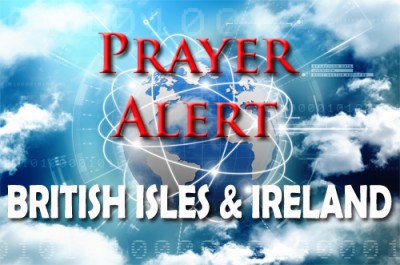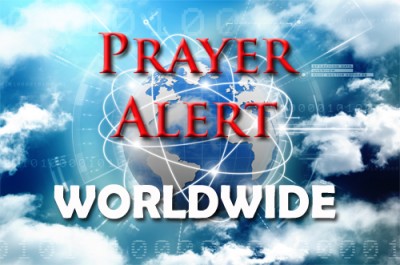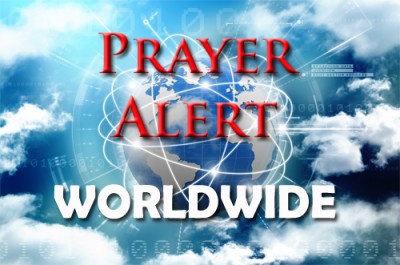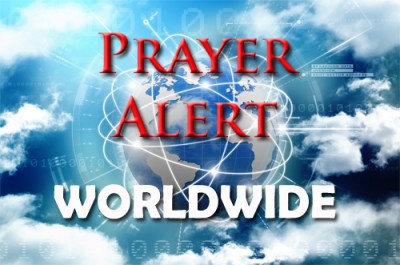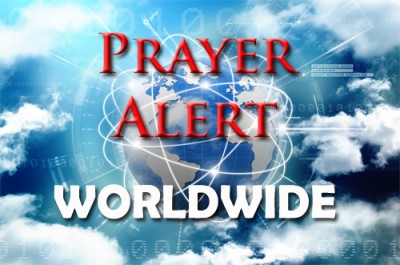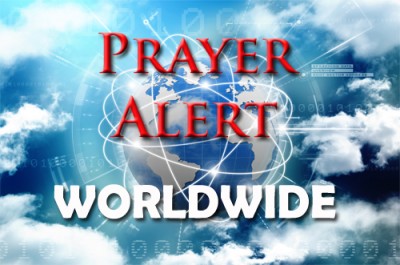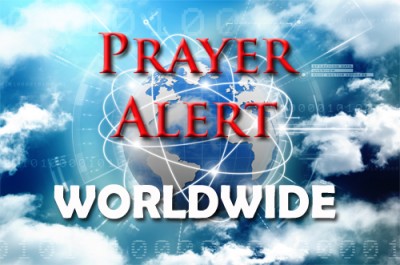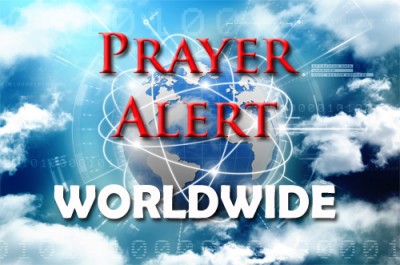The Scottish Government’s ‘named person’ scheme has faced fresh criticism from the ‘Scotland on Sunday’ newspaper which wrote that there is growing concern over the scheme ahead of its statutory introduction in August. The paper was responding to recent analysis of the scheme’s complaints procedure by the Scottish Public Services Ombudsman, Jim Martin. The proposals aim to give everyone under 18 a named person, usually a teacher or health visitor, to oversee them from August next year. He or she would be a contact point if welfare issues needed to be raised with police or social services. In a letter to MSPs, Mr Martin expressed fears that the complaints procedure being introduced by Holyrood is too rigid and so could become outdated. Many are saying that most children already have guardians, and children at risk are identified through social workers.
Algeria: pray for a church under threat
04 Mar 2016Kabylie church, affiliated to the Protestant Church of Algeria, received a letter from the district authorities last week requiring them to cease all religious activities on the grounds of breaching a 2006 decree regulating non-Muslim worship. The authorities threatened to commence legal proceedings against the pastor if Christian worship continues in the church building. The letter provides no further detail about the alleged infringement nor any time-frame within which steps should be taken to ensure compliance with the law. This situation reflects a long-standing legal difficulty faced by churches in Algeria. The 2006 decree stipulates that permission must be obtained before using a building for non-Muslim worship and that such worship can only be conducted in buildings specifically designated for that purpose. In practice, the authorities have failed to respond to almost all applications by churches for places of worship.
Egypt: Al-Sisi’s defective political reality
04 Mar 2016President Al-Sisi is making Egyptians live through a nightmare. Their currency is deteriorating, investments are declining, there are no employment opportunities, and security is poor. Al-Sisi is either marginalising or criminalising his opponents. In return these opponents are doing their utmost to destroy the country that does not recognise them as citizens. The cement blocks surrounding many government buildings as protection from terrorists reflect the present narrow ruling mentality. These blocks are not only physical barriers; they also form a mental barrier which only allows decision-makers to see security from one angle. Meanwhile terrorists are finding many vulnerable targets to attack and regrettably quite successfully. Al-Sisi’s authoritarian style requires a stricter compliance with religious affairs legislation. This is not to the advantage of the large Coptic minority, who have been tolerated but now are being targeted. In the midst of this change there is a small but growing community of Christian converts. See also:
Israel: video of axe assault goes online
04 Mar 2016The family of Israeli security guard Tzvika Cohen, critically injured in a West Bank terror attack last week, expressed dismay as security camera footage of the attack was shared via social media and on the internet. In the grainy video clip, the attacker can be seen swinging wildly at Cohen, who was unarmed, as he lies on his back on the floor trying to fend off the blows with his arms and legs. The attacker fled the scene and was later arrested by security forces. ‘Children are passing the horrible, uncensored pictures from one to the other,’ the victim’s brother, Moshe Cohen, told Army Radio. The eight-year-old son of Rahamim, one of Tzvika Cohen’s brothers, was sent the clip of the attack via WhatsApp; Rahamim himself has been traumatised since he was the victim of a stabbing attack in 2000.
Haiti: refugees in the Dominican Republic
04 Mar 2016Haiti and the Dominican Republic share both the island of Hispaniola and a painful and controversial history. On Tuesday the former Guatemala president said that the international community has abandoned Haiti to its fate and left the Dominican Republic to deal with the consequences of political instability, an economic crisis and the human drama of refugees crossing the Hispaniola borders. He drew the international community’s attention to Haiti’s suffering and asked for major powers to help the Dominican Republic assist the hemisphere’s poorest country. ‘The country on the east of the island, with its own problems, cannot withstand the burden of another poor sister nation.’ The Haitian people’s only escape is the Dominican Republic ‘because all the world’s doors have been closed and that has a huge impact on the economy. Uncontrolled migration strikes directly at health care and education, and contributes to job insecurity.’ Voodoo and Roman Catholicism are the official religions of Haiti. See also outreach ministries to Haiti at:
Today a week-long meeting by officials including the director-general of the World Health Organisation and the director of the Pan American Health Organisation has ended. They met with top Brazilian officials, including the minister of health. They were working to support the country’s efforts to respond to the outbreak of the Zika virus and to exchanging experiences on epidemiological surveillance and treatment of cases of the virus across various nations. They studied the issues surrounding possible neurological complications associated with the virus. Their mission was to enhance the capacity of countries to respond to Zika in the Americas. In addition, a group of experts convened in Colombia last week to support that country’s efforts towards eradicating the virus. To date there have been 107 cases of Zika among US travellers returning from infected areas.
India: new partnership to catch traffickers
04 Mar 2016A US anti-trafficking organisation, in partnership with a Nepalese NGO, has just completed a first-of-its-kind raid and arrest of two major traffickers. For the first time, the Indian Police Special Task force partnered with US and Nepalese organisations in this way. The Kathmandu Post reported, ‘After a tip-off received by the crime branch of the Indian Police, officers raided an apartment in New Delhi on Friday and rounded up two suspected traffickers and eleven women. This was after Shanti Peace Rehabilitation Centre and Free for Life International, organisations working against trafficking, had given information about the trafficking of Nepali women to various Gulf countries via New Delhi and Colombo.’ It has now been revealed that the two traffickers had been sending up to forty trafficked women a month to Iraq and Kuwait. See also
USA: Trump and Israel
04 Mar 2016Following Donald Trump’s ‘Super Tuesday’ win of eight US states in the primary contests, the question of what a Trump presidency would mean for Israel is being discussed. He told CNN, ‘As president there is nothing I would rather do than to bring peace to Israel and its neighbours. I may not be successful in doing the toughest negotiation in the world, so it doesn’t help if I start saying I’m very pro-Israel.’ Trump has also expressed scepticism over achieving a two-state solution, and said he would know within his first six months in office whether a deal can be made. His deepest tie to the Jewish community comes from his daughter, Ivanka, who converted to Judaism before marrying Jared Kushner. Meanwhile, Ku Klux Klan leader David Duke and Nation of Islam leader Louis Farrakhan who has a long history of anti-Semitism, recently praised Trump for his refusal to take ‘Jewish money’ as Farrakhan backed his presidency campaign.
